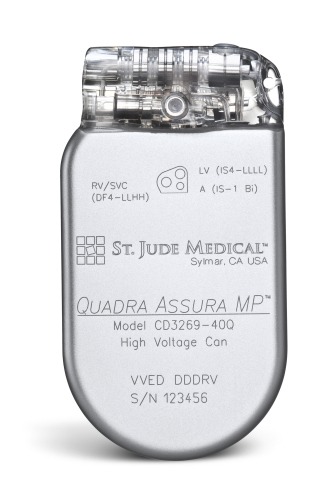
In October 2016, St. Jude Medical recalled a subset of implantable cardioverter defibrillators (ICDs) and cardiac resynchronisation therapy defibrillators (CRT-Ds) due to reports of rapid battery failure. To address the issue, the company has released a battery performance alert tool designed to warn patients and physicians when an implanted device is experiencing low battery or battery failure.
The failure, caused by deposits of lithium forming within the battery and creating a short circuit, prompted the US Food and Drug Administration (FDA) to label the recall a Class I, noting that use of the devices “may cause serious injuries or death” as devices become unable to deliver life-saving pacing or shocks.
St. Jude Medical state that “the likelihood that this will impact [an affected patient’s] health is low, as the vast majority of devices have not experienced premature battery depletion.” The fault could affect a range of ICDs and CRT-Ds manufactured by the company between January 2010 and May 2015.
Battery performance alert to warn of device battery failure
In August 2017, St. Jude Medical launched an FDA-approved battery performance alert (BPA) tool supporting the patients and physicians using the recalled devices. The BPA detects and notifies physicians of abnormal battery performance in the device, which may lead to the battery depletion prematurely. Patients can also receive alerts in the form of a moderate vibration when battery in their device is running low. With the help of these types of alerts, physicians can replace devices as soon as it becomes essential.
Following their approval for St. Jude Medical’s new alert system, the FDA has updated their device recall statement to include information about the BPA, although the recall remains a Class I. The products affected include certain models of Fortify, Unify and Assura (including Quadra) within the manufacturing period, which remained in distribution between until October 2016.









